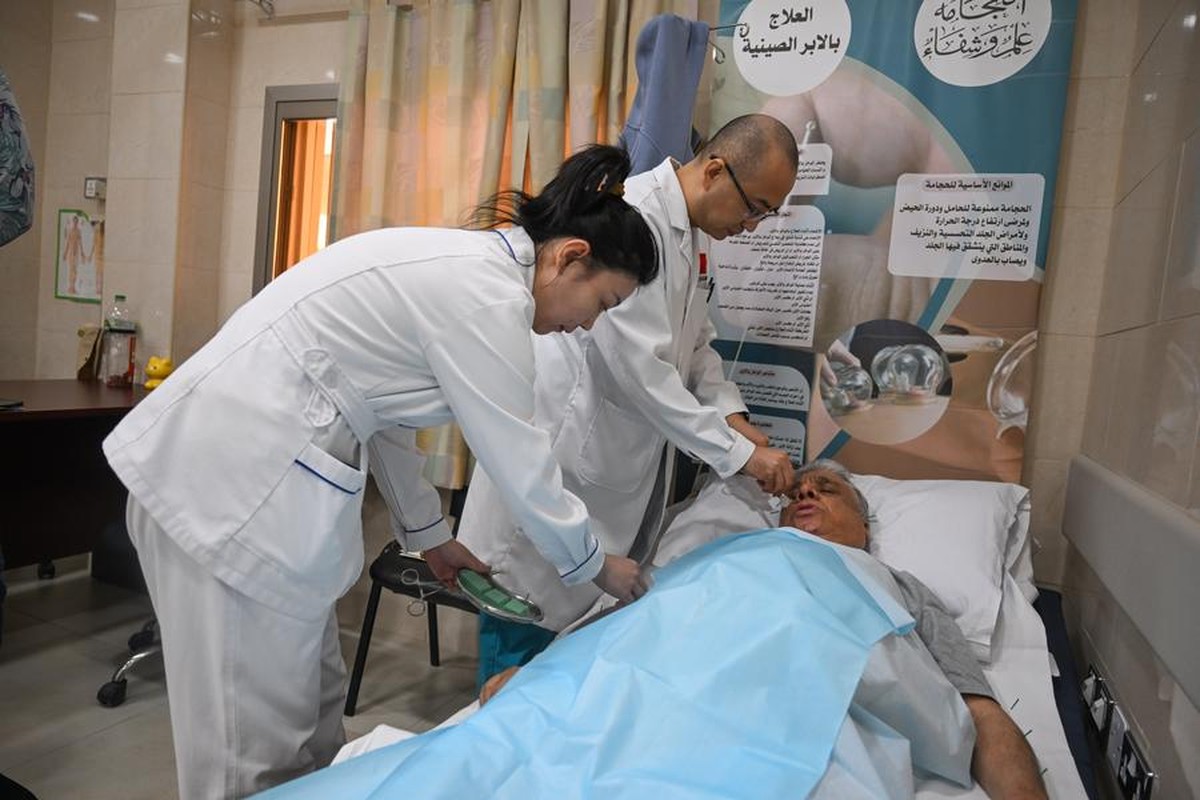16/11/2025
16/11/2025

Chinese medical staff treat Mansour Al-Qallaf in the Traditional Chinese Medicine (TCM) unit of the Natural Medicine and Rehabilitation Hospital in Kuwait's Capital Governorate, Nov. 3, 2025. (Xinhua/Liu Lei)
KUWAIT CITY, Nov. 16: For years, Mansour Al-Qallaf, a Kuwaiti lawyer, endured persistent headaches and declining vision. After seeking treatment at the Traditional Chinese Medicine (TCM) unit of Kuwait’s Physical Medicine and Rehabilitation Hospital, he finally found relief. Al-Qallaf arrived at the clinic in February, cautiously hopeful after years of sleepless nights. After three sessions of the “brain-awakening acupuncture method,” his symptoms eased significantly, and his mobility improved. Continued treatment brought further gains: his vision improved by 0.3 on the standard eye chart. Overjoyed, he shared his experience on social media, calling acupuncture a therapy that “restores life’s balance with fine needles.” “Chinese acupuncture is truly amazing,” he said. To express his gratitude, Al-Qallaf presented the visiting Chinese medical team with a photo album, inscribed in Arabic: “Compassion knows no borders.”
Since arriving in February 2025, the 17th team of Chinese medical professionals in Kuwait has introduced refined clinical techniques, patient-centered care, and the principles of TCM to local communities, offering many Kuwaitis their first experience with traditional Chinese medicine. For 70-year-old Abdulaziz, cervical spondylosis had caused seven years of chronic neck pain. Conventional medications and therapies offered little relief. After a first acupuncture session in September, he felt noticeable improvement, prompting him to follow a full treatment plan.
Over weeks, pain in his shoulders, back, and legs lessened, and daily activities became easier. He now encourages friends to explore TCM for both treatment and wellness. Sophia, another patient, experienced sudden paralysis on the right side of her face while at work. Chinese doctors developed a personalized acupuncture regimen and guided her in daily rehabilitation exercises. After more than a month of treatment, her facial symmetry returned, and she regained full control of her eye. “It was the Chinese doctors who brought back my smile,” she said. Today, the TCM unit sees growing numbers of Kuwaitis, drawn by curiosity and returning with trust.
Acupuncture, tuina massage, and cupping have quietly become part of everyday health routines for many. To demystify TCM, the team also holds open days and public lectures. One local newspaper described the clinic as “an oriental garden blooming in the desert.” “Healing is our duty,” said Xiong Zhuang, leader of the Chinese medical team. “Every consultation, every treatment is also a cultural exchange that transcends borders.” (Xinhua)


